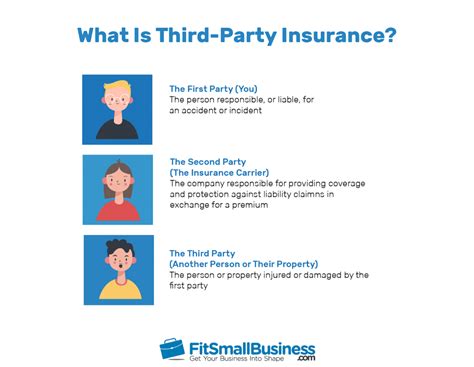Learn about bad faith practices in insurance, signs to watch for, impact on policyholders, legal remedies, and prevention strategies. Essential reading for insurance consumers and professionals.
Understanding Bad Faith
Contents
Understanding bad faith in insurance is crucial for policyholders to protect their rights and benefits. Bad faith occurs when an insurance company acts in a dishonest or unfair manner towards its policyholders. This can include denying valid claims, delaying payments, or providing inadequate communication regarding policy coverage and benefits.
Policyholders should be aware of the signs of bad faith practices by insurance companies. These signs may include repeated requests for unnecessary documentation, unreasonable delays in claims processing, and failure to provide a valid reason for claim denial. Recognizing these signs can help policyholders take appropriate action to protect their rights.
The impact on policyholders of bad faith practices by insurance companies can be significant. Denied or delayed claims can lead to financial hardship, emotional distress, and a loss of trust in the insurance industry. It is important for policyholders to understand their rights and options when facing bad faith practices.
There are legal remedies available to policyholders who have been victims of bad faith by their insurance company. These remedies may include filing a lawsuit for breach of contract, seeking damages for financial losses and emotional distress, or pursuing regulatory action against the insurance company. It is important for policyholders to seek legal guidance in navigating the complex process of holding an insurance company accountable for bad faith.
Signs of Bad Faith
When dealing with an insurance company, it’s important to be aware of the signs of bad faith practices. One of the most common signs is delay tactics. If you find that the insurance company is taking an unusually long time to process your claim or request for information, it could be a red flag. Another sign is the denial of valid claims without proper investigation or explanation. If your claim is denied without a reasonable explanation or the insurance company fails to investigate the claim properly, it might indicate bad faith.
Additionally, misleading information and dishonest communication are also signs of bad faith. If the insurance company provides inaccurate or incomplete information regarding your policy or claim, or if they are not transparent in their communication, it could be an indication of bad faith practices. Furthermore, refusal to pay claims without a valid reason is another common sign. If the insurance company refuses to pay a valid claim without providing a legitimate reason, it may be considered as bad faith.
Lastly, unfair settlement offers and attempts to coerce policyholders into accepting less than they are entitled to can be indicative of bad faith. If the insurance company is pressuring you to settle for an amount that is significantly lower than the value of your claim, it could be a sign that they are not dealing with you in good faith.
Impact on Policyholders
When insurance companies act in bad faith towards their policyholders, the consequences can be devastating. Policyholders rely on their insurance coverage to provide financial protection in times of need, but when their claims are unfairly denied or delayed due to bad faith practices, it can leave them vulnerable and struggling to cope with the consequences.
Furthermore, the impact on policyholders goes beyond just financial strain. It can also cause emotional distress and feelings of betrayal, as policyholders may feel deceived by the very company they trusted to have their best interests at heart. This breach of trust can have lasting effects on their overall well-being, creating a sense of insecurity and disillusionment with the insurance industry as a whole.
Additionally, when policyholders are denied the coverage they rightfully deserve due to bad faith, it can have severe implications on their ability to recover from unforeseen events such as natural disasters, accidents, or illnesses. This can result in prolonged suffering, loss of property, and even bankruptcy in some cases, further exacerbating the impact on policyholders and their families.
Overall, the impact on policyholders as a result of bad faith practices by insurance companies is profound and far-reaching. It not only affects their financial well-being but also takes a toll on their mental and emotional health, making it imperative for legal remedies to be sought in order to protect the rights of policyholders and prevent such injustices from occurring.
Legal Remedies Available
When an insurance company acts in bad faith and wrongfully denies a claim or fails to fulfill its obligations to the policyholder, the policyholder has the right to pursue legal remedies. One of the most common legal remedies available to policyholders in this situation is to file a lawsuit against the insurance company. Through this lawsuit, the policyholder can seek compensation for the damages they have suffered as a result of the insurer’s bad faith actions.
In addition to filing a lawsuit, policyholders may also have the option to pursue bad faith insurance claims through their state’s department of insurance. This process typically involves filing a complaint with the department and allowing them to investigate the insurer’s conduct. If the department finds that the insurer has acted in bad faith, they may order the insurer to pay damages to the policyholder.
Another potential legal remedy available to policyholders is the ability to seek punitive damages in a bad faith insurance lawsuit. Punitive damages are intended to punish the insurer for their wrongful conduct and deter them from engaging in similar behavior in the future.
It’s important for policyholders to understand that they have a range of legal remedies available to them when they have been the victim of bad faith insurance practices. By pursuing these legal remedies, policyholders can hold the insurer accountable for their actions and seek the compensation they deserve for the harm they have suffered.
Preventing Bad Faith Practices
Bad faith practices by insurance companies can have devastating effects on policyholders, leading to denied claims, delayed payments, and unfair treatment. It is important for policyholders to be aware of the signs of bad faith and take proactive measures to prevent such practices.
One way to prevent bad faith practices is to thoroughly research and carefully choose a reputable insurance company. Policyholders should take the time to read reviews, check ratings, and ask for recommendations from trusted sources before selecting an insurance provider.
Policyholders should also carefully review their insurance policies and understand their rights and obligations. It is important to ask questions and seek clarification on any ambiguous terms or conditions before signing a policy. This can help prevent misunderstandings and disputes down the line.
Further, policyholders should keep detailed records of all communication with their insurance company, including emails, letters, and phone calls. This documentation can serve as evidence in the event of a dispute, helping to protect the policyholder’s rights and hold the insurance company accountable for their actions.
Finally, policyholders should consider seeking legal advice if they suspect bad faith practices. An experienced insurance lawyer can provide valuable guidance and support in navigating the complexities of insurance law and advocating for the policyholder’s rights.












